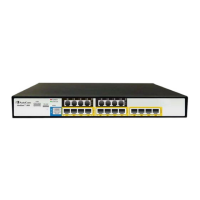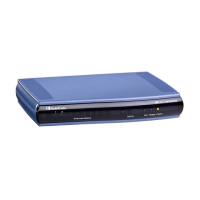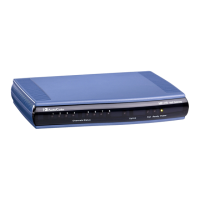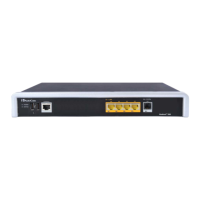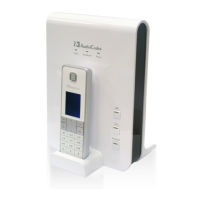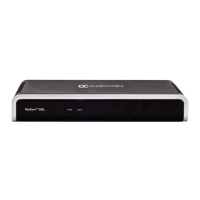Version 7.2 663 Mediant 1000B Gateway & E-SBC
User's Manual 33. Routing SBC
Parameter Description
specific URI source user or all source users.
Destination Username Prefix
dst-user-name-prefix
[IP2IPRouting_DestUsernamePrefi
x]
Defines the prefix of the incoming SIP dialog's destination URI
(usually the Request URI) user part. You can use special
notations for denoting the prefix. To denote calls without a user
part in the URI, use the $ sign. For available notations, see
''Dialing Plan Notation for Routing and Manipulation'' on page
923.
The default is the asterisk (*) symbol (i.e., any prefix). If this rule
is not required, leave this field empty.
Note: If you need to route calls of many different destination
URI user names to the same destination, you can use tags (see
'Source Tags' parameter below) instead of this parameter.
Destination Host
dst-host
[IP2IPRouting_DestHost]
Defines the host part of the incoming SIP dialog’s destination
URI (usually the Request-URI).
The default is the asterisk (*) symbol (i.e., any destination host).
If this rule is not required, leave this field empty.
Destination Tags
dest-tags
[IP2IPRouting_DestTags]
Assigns a prefix tag to denote destination URI user names
corresponding to the tag configured in the associated Dial Plan.
The valid value is a string of up to 20 characters. The tag is
case insensitive.
To configure prefix tags, see ''Configuring Dial Plans'' on page
689.
Note:
Make sure that you assign the Dial Plan in which you have
configured the prefix tag, to the related IP Group or SRD.
Instead of using tags and configuring the parameter, you can
use the 'Destination Username Prefix' parameter to specify a
specific URI destination user or all destinations users.
Message Condition
message-condition-name
[IP2IPRouting_MessageCondition
Name]
Assigns a SIP Message Condition rule to the IP-to-IP Routing
rule.
To configure Message Condition rules, see ''Configuring
Message Condition Rules'' on page 655.
Call Trigger
trigger
[IP2IPRouting_Trigger]
Defines the reason (i.e., trigger) for re-routing (i.e., alternative
routing) the SIP request:
[0] Any = (Default) This routing rule is used for all scenarios
(re-routes and non-re-routes).
[1] 3xx = Re-routes the request if it was triggered as a result
of a SIP 3xx response.
[2] REFER = Re-routes the INVITE if it was triggered as a
result of a REFER request.
[3] 3xx or REFER = Applies to options [1] and [2].
[4] Initial only = This routing rule is used for regular requests
that the device forwards to the destination. This rule is not
used for re-routing of requests triggered by the receipt of
REFER or 3xx.
[5] Broken Connection = If the device detects a broken RTP
connection during the call and the Broken RTP Connection
feature is enabled
(IpProfile_DisconnectOnBrokenConnection parameter is

